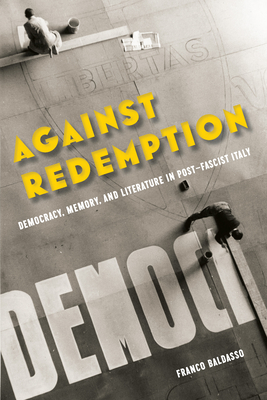Against Redemption: Democracy, Memory, and Literature in Post-Fascist Italy

Against Redemption: Democracy, Memory, and Literature in Post-Fascist Italy
Discloses the richness of ideas and sheds light on the controversy that characterized the transition from fascism to democracy, examining authors, works and memories that were subsequently silenced by Cold War politics.
How a shared memory of Fascism and its cultural heritage took shape is still today the most disputed question of modern Italy, crossing the boundaries between academic and public discourse. Against Redemption concentrates on the historical period in which disagreement was at its highest: the transition between the downfall of Mussolini in July 1943 and the victory of the Christian Democrats over the Left in the 1948 general elections. By dispelling the silence around the range of opinion in the years before the ideological struggle fossilized into Cold War oppositions, this book points to early postwar literary practices as the main vehicle for intellectual dissent, shedding new light on the role of cultural policies in institutionalizing collective memory.
Descrierea produsului
Discloses the richness of ideas and sheds light on the controversy that characterized the transition from fascism to democracy, examining authors, works and memories that were subsequently silenced by Cold War politics.
How a shared memory of Fascism and its cultural heritage took shape is still today the most disputed question of modern Italy, crossing the boundaries between academic and public discourse. Against Redemption concentrates on the historical period in which disagreement was at its highest: the transition between the downfall of Mussolini in July 1943 and the victory of the Christian Democrats over the Left in the 1948 general elections. By dispelling the silence around the range of opinion in the years before the ideological struggle fossilized into Cold War oppositions, this book points to early postwar literary practices as the main vehicle for intellectual dissent, shedding new light on the role of cultural policies in institutionalizing collective memory.
Detaliile produsului












